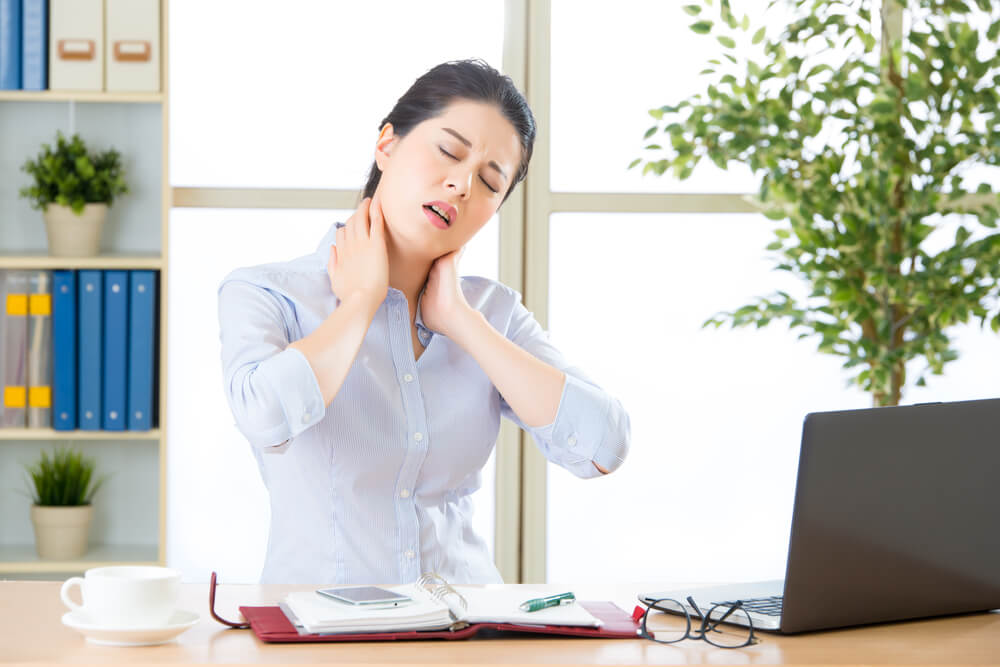The neck is made up of many muscles, ligaments, tendons and nerves. Up to 50% of adults will experience pain in their necks. One potential cause of the neck pain you’re experiencing could be due to a charley horse. When you hear “charley horse,” you’re likely to think of muscle cramps in your legs; however, a charley horse can happen in any muscle.
What is a charley horse?
A charley horse is another name for a muscle spasm, which can occur in any muscle. It is caused by muscle contractions, which can be painful if the muscles don’t relax quickly. A charley horse in your neck is normal unless it’s frequent in recurrence or you experienced prolonged or severe pain.
Who is at risk for a charley horse?
Anyone can be affected by a charley horse. However, certain people can be more susceptible to experiencing a charley horse than others, including:
- Athletes.
- Infants.
- Older adults.
- Obese people.
- People taking certain medications such as diuretics.
- Smokers.
What causes a charley horse in the neck?
A charley horse in your neck can be caused by a number of factors including:
- Hours hunched over cellphones, tablets or computers.
- Poor posture.
- Overexertion.
- Emotional stress.
- Turning or lifting the head.
- Yawning.
- Nerve compression.
- Dehydration.
- Having too little potassium, calcium or sodium in the blood.
- Carrying heavy objects improperly.
Some experience charley horses in their sleep, due to sleeping in awkward positions or without proper support as well as any of the above-mentioned causes.
Signs of a charley horse in your neck
A charley horse can come on suddenly, from a simple twitch of the muscle to severe pain. Other signs of a charley horse can include:
- A tingly, pins-and-needles feeling in your neck.
- Dizziness.
- Hard or tight feeling neck muscles.
- Onset of a headache.
- Pain or discomfort feeling from deep in the neck.
- Sudden or sharp pain that worsens when trying to move the nec
- Difficulty moving the head, neck or shoulders.
If you experience prolonged or severe pain, or frequent charley horses in your neck, you should seek medical care to make sure there isn’t an underlying condition exacerbating the spasms.
How can you treat a charley horse in your neck?
Most charley horses in the neck don’t require a doctor’s attention. They can be managed at home or under the guidance of a physical therapist. These treatments may include:
- Stretching your neck — Stretching your neck can help loosen the seized muscles causing the charley horse. These stretches can be done under the guidance of a physical therapist or at home.
- Using heat therapy — Using a heating pad or a warm towel placed on your neck can help promote better blood flow, which can then help relieve muscle spasms. Alternatively, a warm bath or shower may also help soothe your neck muscles.
- Using cold therapy — Applying an ice pack or a pack of frozen vegetables to your neck may help relieve a charley horse in your neck. The cold can help with inflammation.
- Taking over-the-counter medication — While taking an over-the-counter medication won’t address the underlying issue triggering the charley horse in your neck, it can help relieve the inflammation in your neck, which may then help relieve your pain.
- Manual therapy — A physical therapist may use manual therapy techniques to help charley horse pain in your neck. These techniques may include soft tissue mobilization or manipulation. The physical therapist uses their hands for these therapeutic manipulations of the muscles and other soft tissue in your neck.
How can you prevent a charley horse in your neck?
As common as charley horses in the neck may be, the good news is that there are steps you can take to help prevent them. Some ways to help prevent a charley horse can be:
- Stretching before and after exercising.
- Staying hydrated with water throughout the day.
- Drinking liquids with electrolytes such as Gatorade.
- Stretching before you go to bed.
- Using adequate pillow support for your head and neck when you sleep.
- Addressing your stress to help you relax.
- Adjusting monitors or screens while you work to help neck strain.
- Avoiding carrying heavy loads on one shoulder or with one arm.
Border Therapy Services is here to help you relieve your charley horse pain in your neck
If you are experiencing frequent or painful charley horses in your neck, our Border Therapy Services teams are here to help you. Our highly trained physical therapists can build an individualized treatment plan to help you reduce your charley horse pain.
Contact our team today for more information or to schedule an initial appointment.

